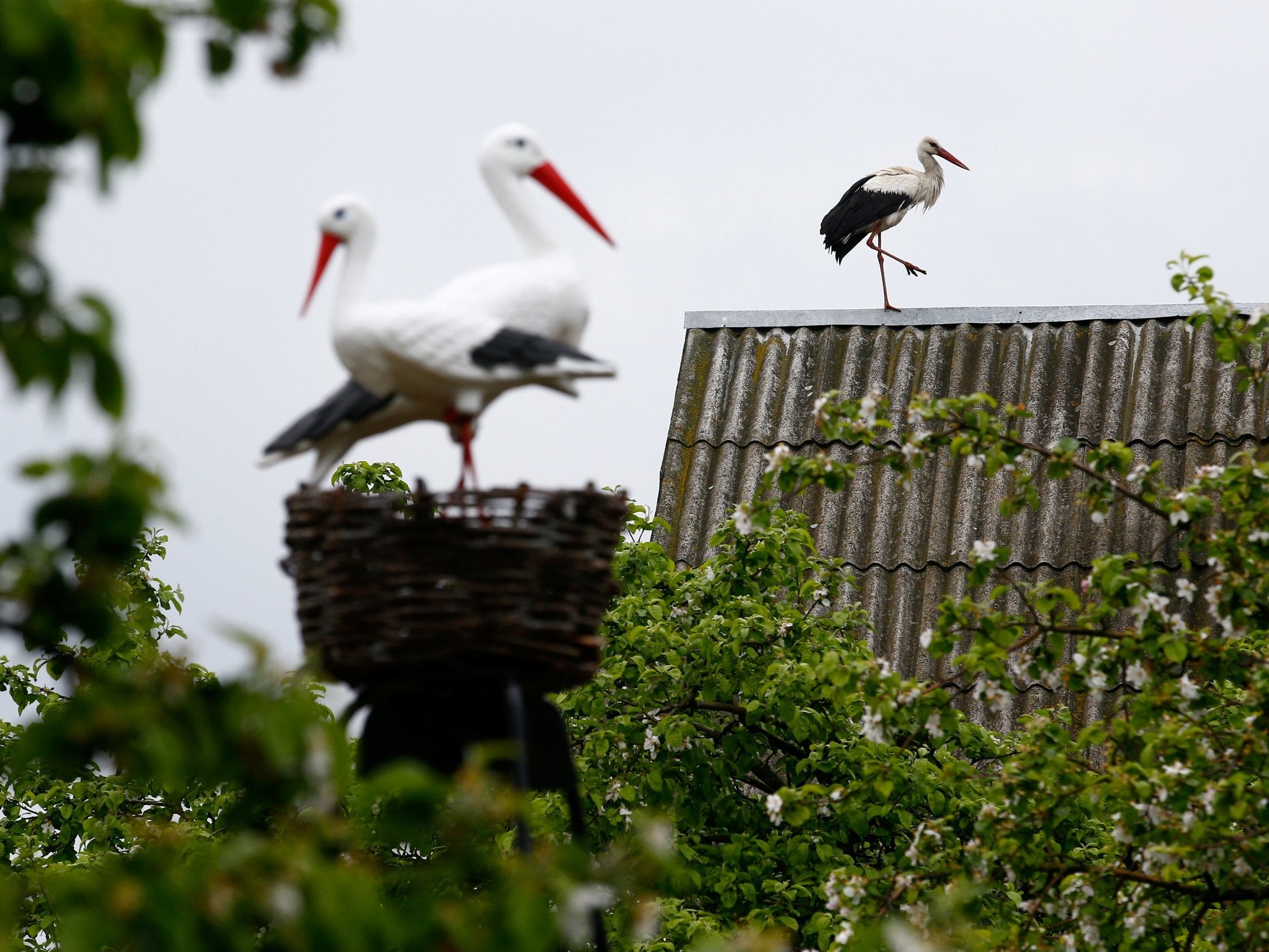White storks spread across England for first time in 600 years as rewilding project tackles biodiversity crisis
Sixth mass-extinction event to ever face our planet is currently underway, scientists warn

Your support helps us to tell the story
From reproductive rights to climate change to Big Tech, The Independent is on the ground when the story is developing. Whether it's investigating the financials of Elon Musk's pro-Trump PAC or producing our latest documentary, 'The A Word', which shines a light on the American women fighting for reproductive rights, we know how important it is to parse out the facts from the messaging.
At such a critical moment in US history, we need reporters on the ground. Your donation allows us to keep sending journalists to speak to both sides of the story.
The Independent is trusted by Americans across the entire political spectrum. And unlike many other quality news outlets, we choose not to lock Americans out of our reporting and analysis with paywalls. We believe quality journalism should be available to everyone, paid for by those who can afford it.
Your support makes all the difference.A project aimed at giving white storks a new lease of life in the UK has seen the birds take flight and spread across the south of England for the first time in hundreds of years.
Two dozen young white storks were released from Knepp in West Sussex in August, the first steps towards recovering a species believed to have been lost to the UK more than 600 years ago due to hunting and the loss of habitats caused by farming and land management.
Now the birds, eight of which carry GPS trackers, have been spotted across the south of England – including Cornwall’s Hayle Estuary more than 350km away.
Lucy Groves, the project officer for Durrell Wildlife Conservation Trust, one of the groups behind the scheme, said: “We have had reports coming in from East Sussex, Southampton, Dorset and Penzance in Cornwall, where the birds spent some time wowing holiday makers over the August bank holiday weekend.”
Meanwhile some of the birds have joined others in the migratory species on the journey to Africa, where storks traditionally spend the winter months.
Ms Groves added: “We are happy to say that some of the birds have made their way back to Knepp, whilst excitingly, others have decided to travel south having crossed the channel, and we can't wait to find out their migration routes. This is a huge milestone for the project and I will be following their progress closely.”
Rewilding is one of a number of approaches taken by environmentalists looking to tackle diminishing biodiversity in the UK and the world by reintroducing lost species into ecosystems.
The IUCN red list has found more than 28,000 species are threatened with extinction – making up 40 per cent of amphibians assessed by the group, 25 per cent of mammals and 14 per cent of birds.
Experts have warned this dramatic decline in ecosystems is directly caused by the human race’s interaction with the environment – with scientists Gerardo Ceballos, Paul R. Ehrlich, and Rodolfo Dirzo warning in a 2017 paper that humanity’s ongoing “biological annihilation” meant that the sixth mass-extinction event to ever face our planet is currently underway, putting both the human and the animal world at risk.
However environmental activists believe human initiatives can help turn back the tide. The numbers of white storks have begun to pick up once again thanks to rewilding and monitoring schemes, protection areas and the EU Birds Directive – the oldest piece of environmental legislation to come from the European Union that seeks to protect wild bird species.
Another such species to benefit in the UK are beavers, which have been reintroduced in Scotland and Yorkshire following support for the scheme from the Department for the Environment, Food and Rural Affairs (Defra).
A native species up until the 1600s, the Royal Society of Wildlife Trusts believe the mammal’s potential success could also help to create the kind of wetland environments storks need to flourish, further bolstering the ecosystem.
Join our commenting forum
Join thought-provoking conversations, follow other Independent readers and see their replies
Comments